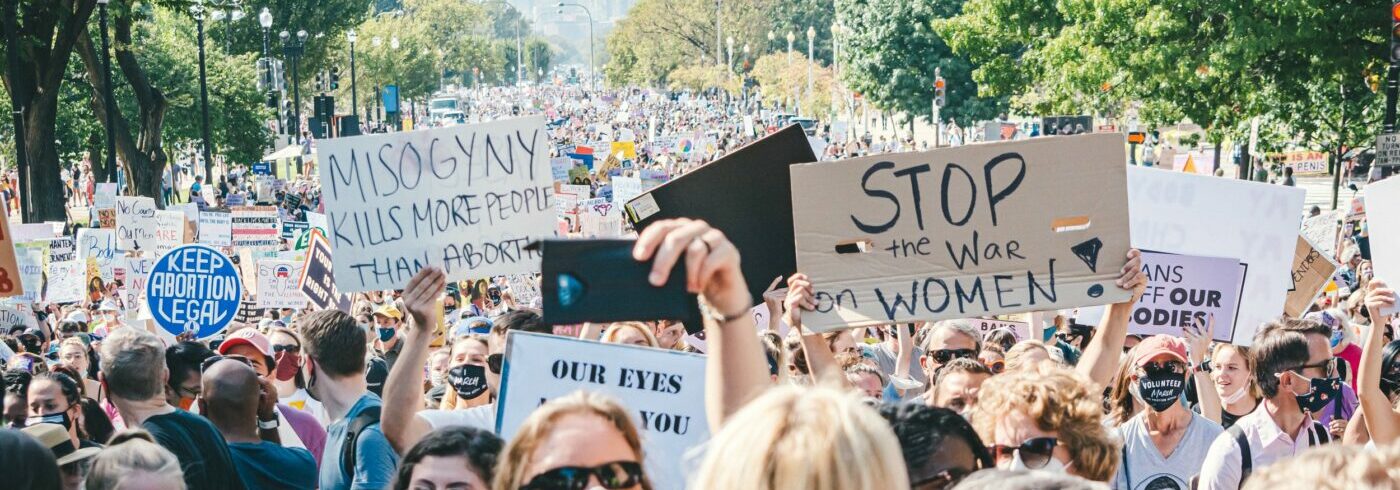
Gen Z Activists | Hearing From Young Activists
Article Highlights
- The important causes
- How are they protesting?
- Should brands remain impartial or should they get involved?
Be the first to access new posts and exclusive content
Each month we’ll be looking at a different issue, topic, value or sector that’s important to Gen Z and exploring it in weekly blog posts. This month we’re focusing on Gen Z and activism, hearing this week from young people as they discuss activism and protesting.
Last week we looked at how Gen Zers are protesting, from using social media to attending physical protests, and this week we’re hearing directly from some young people. Rachel, Aash and Andrew all spoke on a recent Voxburner+ panel which looked at our recent Student Life report, and one of the key topics we spoke about was the changing face of student activism. Key discussions focused on the pros and cons of using social media as an activism tool, what causes are important to them at the moment and how brands should/shouldn’t get involved in socio-political issues.
The important causes
It comes as no surprise that Gen Zers aren’t just interested in one issue – after all, at the beginning of the month we found at they’re passionate about everything from health and wellbeing to representation and inclusivity… and our panellists were no exception. Aash explained that he wasn’t passionate about one single cause, and that “it’s just about trying to help where I can with whatever causes are [important] at the moment.”
Nonetheless, it’s inevitable that individuals will feel more strongly about some issues than others, whether that’s “[tackling] this ingrained culture of misogyny and sexism in our society” for Rachel, or looking at the “intergenerational unfairness happening in the UK at the moment” for Andrew. Brexit also proved to be a strong talking point, with one of our panellists getting involved in marches to fight for a different Brexit outcome: “In recent years, I was really passionate about the effects of Brexit on young people, so I was involved in the student wing of the People’s Vote campaign…I travelled down to London from Edinburgh to protest, to march for a second vote.”
https://twitter.com/library_fae/status/1465128892130234371?ref_src=twsrc%5Etfw%7Ctwcamp%5Etweetembed%7Ctwterm%5E1465128892130234371%7Ctwgr%5E8a341650a606e6f6f1457420b32db4f4ba298a9e%7Ctwcon%5Es1_&ref_url=https%3A%2F%2Fwww.voxburner.com%2Fblog-source%2F2021%2F11%2F30%2Fgen-z-activists-hearing-from-young-activists
How are they protesting?
As we’ve previously discussed, there are pros and cons of all types of activism, and our Gen Zers aren’t oblivious to the risks that social media poses, mainly because it facilitates ‘slacktivism’ – the sharing information without really consuming or engaging with it and ultimately risking anything. “Slacktivism really worries me… you see people who definitely don’t read what they’re posting and are just doing it for the sake of it,” says Rachel, “I think it can be incredibly frustrating for people that are passionate about that cause, especially because social media is such an important platform to spread awareness and educate… it’s really important that people read what they post.”
All of our panellists were in agreement with Rachel, acknowledging that simply resharing a post on your social media doesn’t necessarily mean that you fully understand it. Andrew said: “A lot of [people] are talking about issues but perhaps only know about them at a surface level and when you dig down a bit deeper the number of people actually knowing stuff is a lot smaller… it can sometimes be seen as quite performative, like, showing your friends you care but not actually acting on it.”
“not only those ig stories are rooted with guilt tripping but it’s promoting performative activism. i know u all mean well, but if u’re genuinely against social injustices and wanna spread awareness, this is not the right execution. this is SLACKTIVISM.” — aelin🧣 (@ishiiinggggg) November 28, 2021
But what did our panellists think the solution is? Rachel is Head Angel in Edinburgh for the women and non-binary people’s safety support group Urban Angels, and this community have a good social media presence and post fact-checked, reliable and engaging content. She says that she thinks people should continue to share information online – after all, the more people who know about it, the better – but asks that people just spend an extra five minutes doing their own research. She also highlighted the long-term dangers of ‘slacktivism’, suggesting that “there have been petitions that have been posted recently that once you start to dissect them you realise that they’re not intersectional or helpful to everyone, and the danger is that once you get people signing it once it gets debated in parliament you get policy change that actually isn’t inclusive and is harmful to some people.”
Nonetheless, our panellists interestingly highlighted the issue of accessibility, noting that social media enabled people across the world to get involved in anything at any time, whilst in-person protesters face a number of restrictions, whether that be due to Covid or just the accessibility of events in general. Admittedly a the risk of catching COVID-19 or the cancellation of a protest is unavoidable, however, the general consensus appeared to be that in-person protests needed to be more readily accessible for everyone, regardless of ability or location.
Should brands remain impartial or should they get involved?
In short: get involved. Andrew said: “I don’t think brands should remain impartial because the people who use their products and shop in their stores aren’t impartial, so why should they be? Everyone has issues that affect them, so looking to see brands talking about those issues is really important.” A recent example of a brand that is getting actively involved in a socio-political issue is clothing brand Monki, which have teamed up with The Body Dysmorphic Disorder Foundation for their campaign The Selfielove Foundation. By sharing educational information, encouraging consumers to sign petitions and creating engaging social content, the brand is trying to raise awareness about BDD amongst Gen Z.
But sharing petitions and informative content isn’t the only way forward. Andrew went on to say that he’d like to see brands platforming those people that the issues affect: “Sometimes if a brand is talking about issues you just feel like it’s been written by someone in their marketing department…it doesn’t feel very authentic. What is authentic in regards to brands speaking out is who they’re platforming.”
It was also suggested that being silent is no longer an option – something to bear in mind when your brand is thinking about how to engage with any socio-political brands (remember: they have to relate to your brand – Gen Z wants authenticity!). “I think to be silent is to be complicit”, said Rachel. “It’s the brands and big organisations that hold the power to make change and to pressure governments and cause policy change.”
So you’ve heard it directly from our Gen Zers: don’t stay silent, share fact-checked information, listen to your consumers, platform the right people, and don’t be afraid to get authentically involved.
VXB+ subscribers can now watch the full deep dive on demand. Not part of the VXB+ community? Join us today!
Subscribe to our newsletter for weekly updates on the latest youth trends direct to your email inbox.



